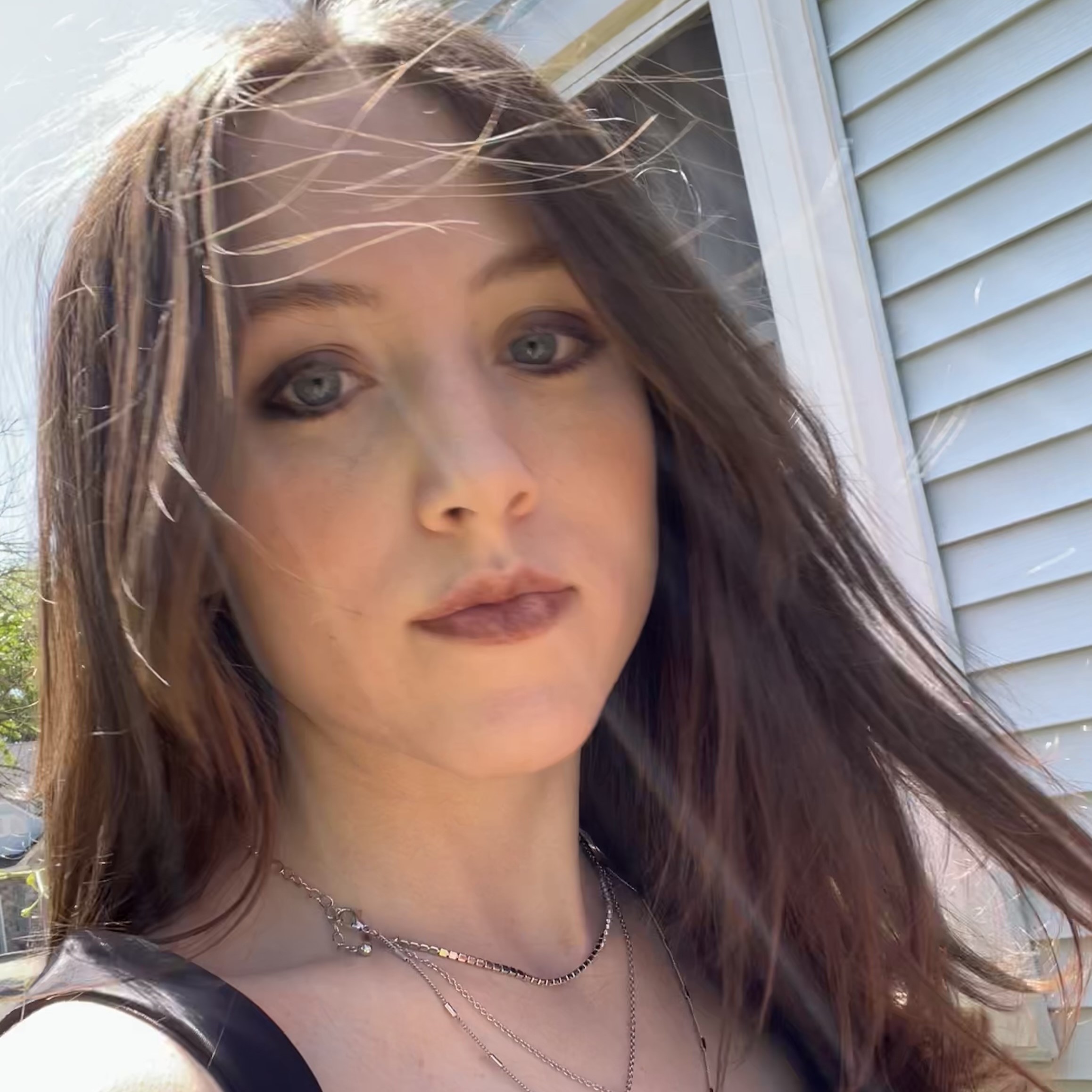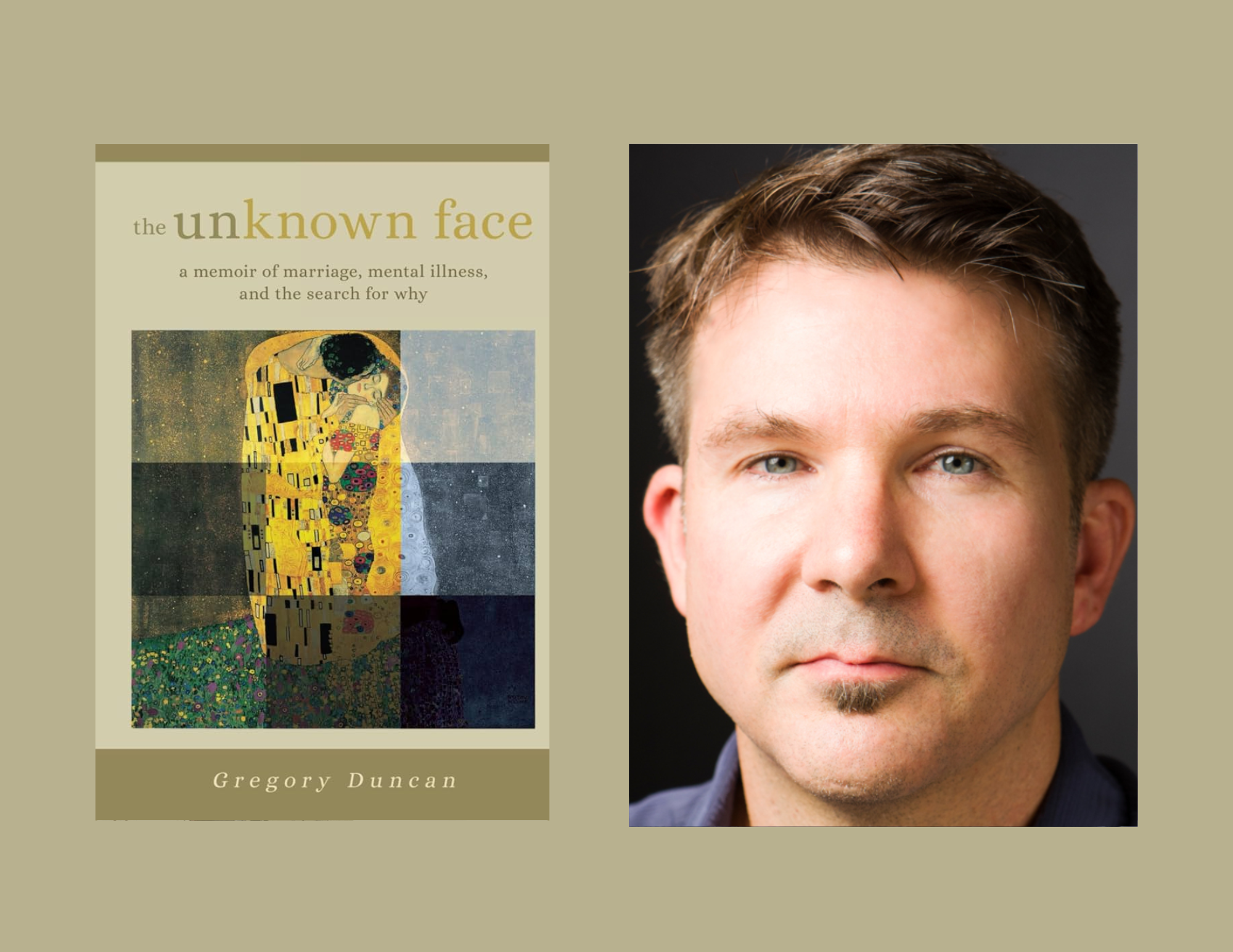Gregory Duncan is a writer living in the Philadelphia area. Before writing, he spent twenty years playing jazz music around the globe, releasing three recordings along the way that all made it onto radio stations across the country. Duncan began his writing career with The Unknown Face, a memoir about an emotionally straining time in his life—the aftermath of his wife’s suicide.
Reese Pfunder: Could you give an overview of what your memoir is about?
Gregory Duncan: In the summer of 2018, my wife died by suicide and when that happened, everything shifted for me—my entire outlook changed. After everything that happened in that summer in August, it shifted my focus to notice things that I didn’t notice before. I started to piece together what happened, and in doing that I had to do a lot of reading, along with trying to figure out what kind of things my wife might have been going through that I wasn’t aware of before her death. The book starts off by talking about our relationship and the some mental health issues and things I discovered after the fact—things that neither of us realized in time. Then, I wrote about how I dealt with the grief and the trauma after.
RP: Could you tell me how your memoir is different from other memoirs?
GD: It’s something difficult, I think, for anybody to write about. When I started writing, I started sooner than most people start writing memoirs—usually in memoirs people take a long time to process and reflect and with that comes intense emotions that they also need to process. I started writing my memoir the first year or so after it happened, because I was worried that I wasn’t going to remember things if I let too much time pass. And so, the whole story was a lot to deal with. I thought that when I first started writing that I would be done with it within a year or two, but I didn’t realize that writing a book would be so difficult. At first, I wrote it like a narrative nonfiction rather than a typical story because that felt easier at the time. After a while of struggling to write the story, my editor suggested that I delivered the story as a memoir to engage more people instead of writing specifically toward a mental health community.
RP: Did that shift make the writing process more challenging for you?
GD: Yeah, it made it more difficult because I had to learn how to write a story, and how to turn our life into a story. I don’t know how other people deal with that when they write memoirs, but it is kind of a weird process of turning your life into an ever-evolving genre. The main thing was piecing everything together in a chronological way because the story started out in a series of reflections, so I had to sort everything in a way that made sense. Another thing is, with a traumatic event, your brain will process it in chunks and the hard thing is putting all the chunks together in a coordinated way and that takes a lot of time and healing to go through.
RP: What made you want to write this memoir?
GD: Well, normally I ended up recording music whenever I had a cumulation of emotions that I had building up inside of me and that I wanted to express. When my wife passed, I had a lot of stuff that I was processing and trying to express, but I couldn’t really do it with music because it was too much—it was too complicated and complex. So, I decided to turn to writing to express what I was feeling. The real question wasn’t why I wanted to write this, but more so why did I decide to publish something about it—because those are two completely different things. I wanted to share the story because I felt like the experience was so profound that it was worth sharing with people that would understand that kind of loss and who are familiar with mental illnesses.
RP: Did anyone help you write this story or was this something that you worked on alone?
GD: I had help—it was the most difficult thing I have ever done. I started off getting some advice to go to a writer’s conference to get more involved with the writing community—and that’s what I did about four years ago. And then I met an editor that has experience with writing memoirs, and I worked with him initially, and then I started looking for more writers that would give me feedback. That whole process took a very long time—just trying to get feedback from other writers and editors. In my experience, writers are very particular, and it is very hard to please another writer. Each one has their own distinctive style, and because of that their advice will come with a lot of nitpicking which can be very discouraging for somebody like me who never had that much experience in writing in the first place.
RP: Was it difficult finding a publisher for your memoir?
GD: Yes—I had to learn a lot about publishing as I went through the process. Writing queries and proposals were some of the things I had to learn and practice along the way. I was able to get agents interested in my memoir, but when I showed them my work, or where I was it would take months for them to look over the manuscript. This was difficult for me because the process of waiting for feedback made it hard to move on with my life—constantly coming back to that moment of your life. At some point, I decided I was going to self-publish the memoir because I didn’t want to wait and keep on going through that same process repeatedly.
RP: Do you have any advice for anyone looking to write a memoir that you wished you had known earlier?
GD: Yes, a couple things. There’s a book someone recommended to me called Shimmering Images by Lisa Dale Norton that gives good advice and guidelines for writing memoirs. That book helped make the writing process easier for me and allowed me to revise my memoir in a more cohesive way. Another thing is that I wouldn’t worry about putting time or distance between you and whatever you are writing about because when I sat down and started writing the story, I thought that you had to have all the dialogue and little details written exactly as it happened. A memoir doesn’t need to be exact—it’s hard to recall specific memories or how a situation happened exactly so it’s alright if you improvise a little. By putting time and distance between you and your writing, it gives you a better perspective and focus on whatever it is you’re reflecting on.
RP: Do you have any plans on potentially releasing another book in the future?
GD: I certainly have a lot of thoughts and ideas that I could potentially use to write some kind of book, but it all depends on what I’m doing in my life in terms of how much free time I have because the process is so time consuming and challenging. If I wrote another memoir like this one again, I would need someone to support me and to share my ideas with first. I think if I wrote a book again, I would try another genre—maybe something fictional.
You can learn more about Gregory Duncan on his website. You can also purchase The Unknown Face here.

A full-time student striving towards a BA in English, Reese Pfunder focuses most of her time and attention on books. With her persistent passion in creative writing and storytelling, she hopes to one day help other writers make their aspirations a reality through a career in publishing, while also tinkering away at her own creative projects.
